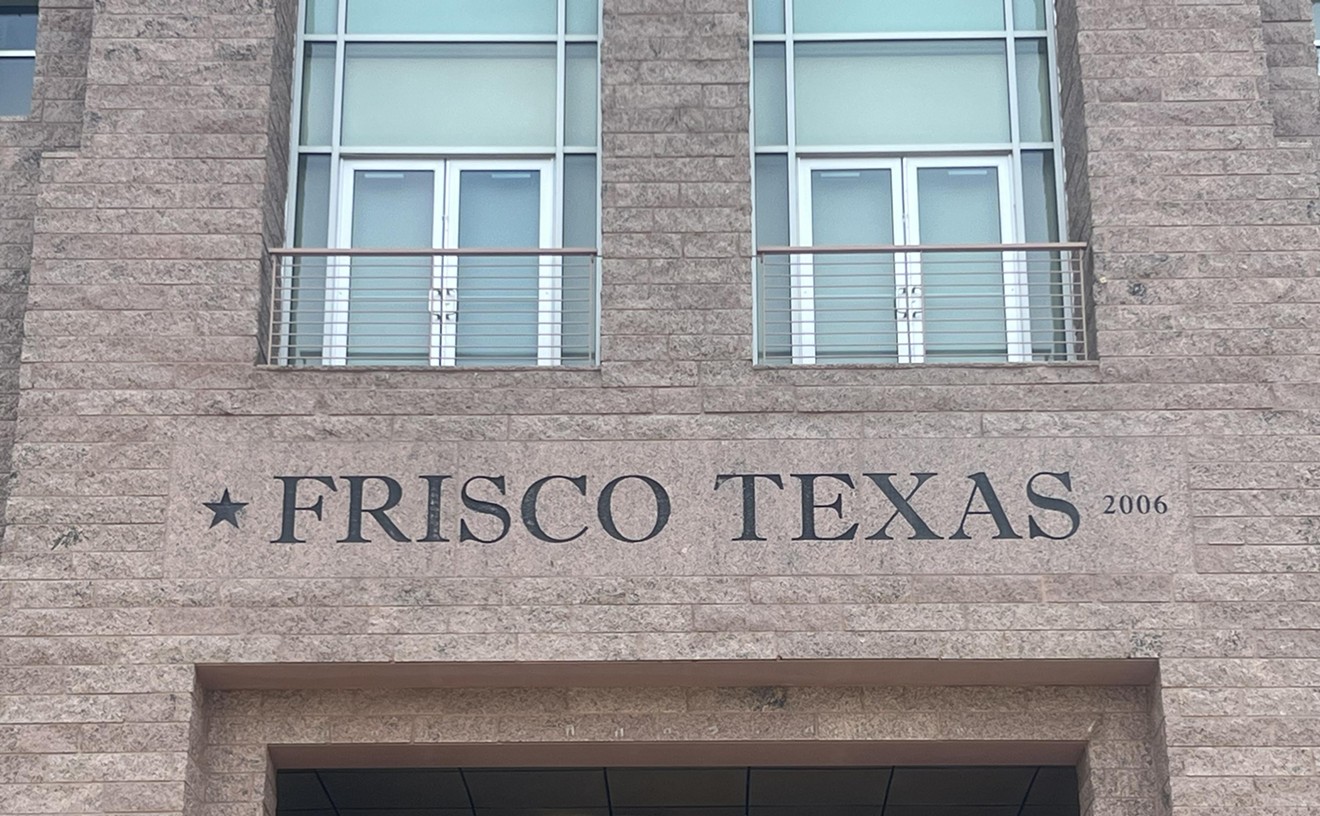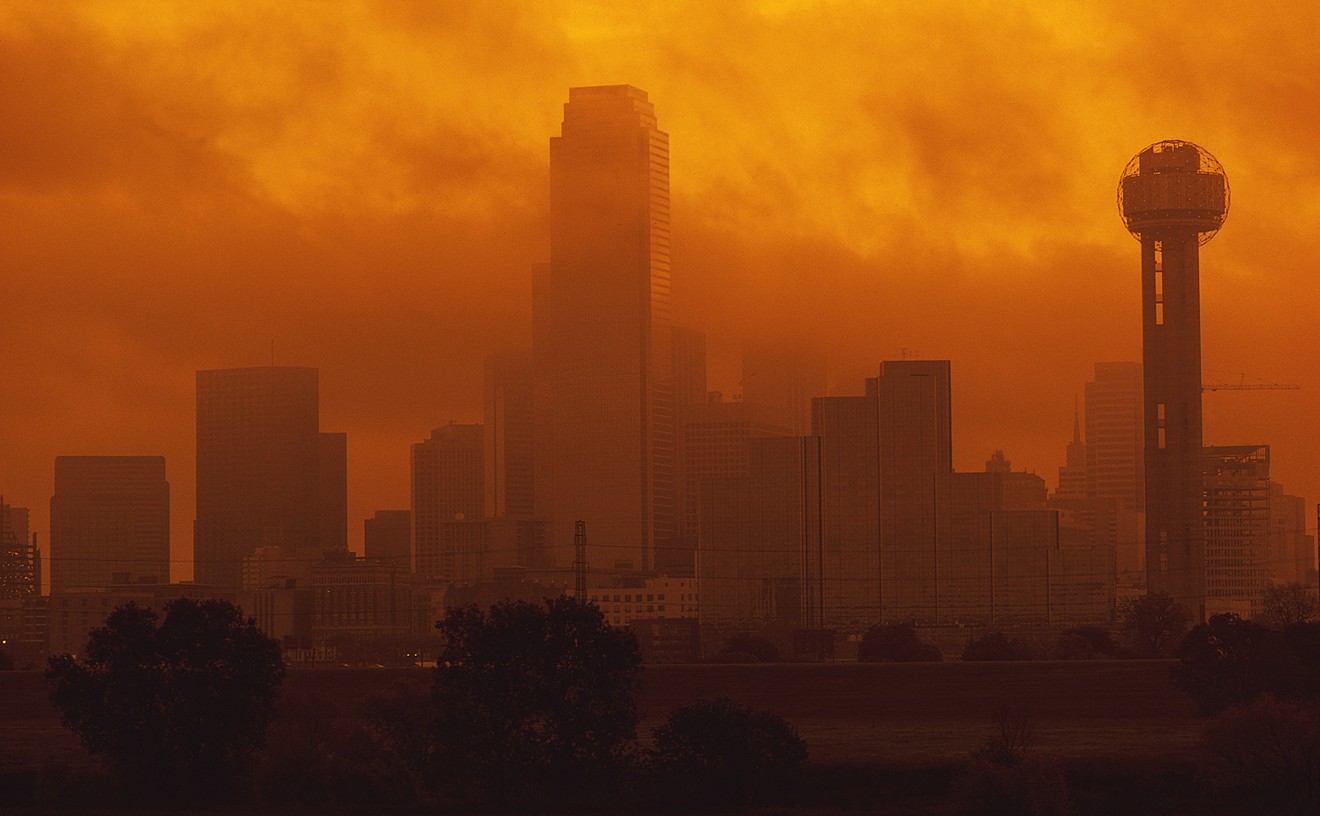Now the largest ethnic group in Dallas, Hispanics fought hard recently for a city-sponsored holiday to commemorate one of their own: farm labor organizer Cesar Chavez. Union and civil rights leaders, who see the late Chavez's legacy akin to that of Martin Luther King Jr.'s, joined Latino supporters in seeking a paid holiday for city employees on March 31, Chavez's birthday.
Since an additional paid day off for city workers would have cost Dallas $1 million, then-City Councilman Steve Salazar proposed a cost-saving compromise: Make Cesar Chavez Day fall on the same day as an existing city holiday, Presidents Day. Most council members didn't foresee any controversy.
One arose anyway when race-baiting KLIF shock jock Tom Kamb, who reportedly called Chavez an "illegal immigrant," coordinated a fusillade of 600 to 800 patriotism-touting e-mails to council members that protested the plan to tack another honoree onto the day set aside to honor Washington and Lincoln with furniture and appliance sales. So the council came up with a compromise Plan C: Celebrate Chavez Day on Labor Day. Like most political compromises, this one left all sides not quite happy. "He exemplifies the workers of America, and to me that is very important," said former council member Donna Blumer, who came up with the proposal. Latino leaders realized it was better than nothing. "I'm glad they at least recognized him in some form," says Adelfa Callejo, a prominent Hispanic attorney and activist.
Now, however, at least one key constituency is acutely displeased with the compromise and wants local activists to start from scratch: the Chavez family.
In a June 13 letter to Salazar, Andres Irlando, executive director of the Los Angeles-based Cesar Chavez Foundation, thanked Salazar for his efforts to create a Chavez holiday. But, he wrote, "I respectfully request, on behalf of the Chavez family...that the City Council rescind its designation of Labor Day as Chavez Day, and instead revisit the issue of honoring Cesar on his birthday, March 31." Irlando asked that Salazar work with his former colleagues to rectify the situation "expeditiously."
Why would Cesar's widow, Helen Chavez, and other family members balk at a genuine effort to honor Chavez, who died in 1993 at age 66? A Labor Day tie-in, they believe, sells him short.
"It would not be a fitting tribute to Cesar's vast and ecumenical legacy to solely honor him as a labor leader--and not as one of the foremost civil rights leaders in American history," Irlando wrote. "Cesar was a civil rights, Latino, farmworker and labor leader; a religious and spiritual figure; a community servant and social entrepreneur; a crusader for nonviolent social change; and an environmentalist and consumer advocate."
Essentially, they chafed at the concept of singling out Chavez on Labor Day. "Labor Day honors all of labor, not just one particular leader or individual," said Irlando, who notes six states and dozens of cities have designated stand-alone days to honor Chavez.
In Dallas, reaction to the letter has been mixed. On May 27, the council ratified the Chavez/Labor Day ordinance. Only Sandy Greyson dissented, citing the foundation's missive.
Another Latino leader says the Chavez family had an unrealistic vision of what's politically possible in Texas compared with California, where Hispanic political roots are deeper and Chavez's labor efforts were most successful. "Here in Dallas, that won't fly," says Jesse Diaz, president of a Dallas chapter of the Dallas League of United Latin American Citizens. "Maybe in 10, 15, 20 years, that would be a good time."
The lament of others is: We wuz robbed. "We got a holiday we already had," says Gene Freeland, president of the Dallas AFL-CIO, who met Chavez in 1966 when the late leader sought to organize Texas farmworkers. Freeland claims council members forged the Labor Day compromise without consulting him and other advocates and feels Chavez deserves more. "He worked with the most downtrodden and abused group of people in the U.S. at that time," he says, "and he won. He got the conscience of the world."
Born in 1927 in Yuma, Arizona, to a family of itinerant farmworkers, Chavez left school by eighth grade to help support his family. A World War II Navy vet, he joined a community organization that registered Chicano workers to vote. In 1962, he moved his family to Delano, California, and formed the group that became United Farmworkers. Fighting harsh working conditions in pesticide-laden fields, in 1965 he led a five-year strike against grape harvesters. For three decades, boycotts, fasts and protest marches he led against grape and vegetable growers garnered national support.
Despite several appearances, the energy of Chavez's movement never really made it to North Texas. "Here in Dallas, we just heard about him on the news," says Diaz, who complains that Chavez's achievements are not taught in schools. Still, he inspires many. In restaurants, illustrations of Chavez with a saintlike glow proliferate where Latino cooks toil. An East Dallas elementary school is named after him.
But Chavez may yet inspire another protest--against KLIF, a low-rated talk radio station, and its advertisers. Lately, the once-dominant broadcaster has hit on a formula of race-baiting screamfests in its efforts to make headway against conservative talk titans WBAP and KRLD. Late last fall, KLIF hired Kamb, an ex-cop-turned-Denver and San Francisco talk-show host, to prop up its afternoon lineup. Essentially, Kamb, who didn't return calls from the Dallas Observer, uses Dallas politics as a flimsy pretext to bash black people--"the former slaves of America," he hollered last week--and, to a lesser degree, Hispanics.
Kamb now tells his listeners they "saved Presidents Day." Dressed in colonial garb, he appeared before the council on May 27 against the Chavez/Labor Day compromise, arguing that the council sought to make Labor Day a separatist holiday. "Only the brown people work in Dallas," he said. "This is a disgrace to devalue people of color because they don't look like Steve Salazar; that is a disgrace." Calling Kamb a "bigoted little hatemonger," Mayor Ron Kirk removed him from the meeting and urged KLIF to fire him.
LULAC's Diaz, who appeared on Kamb's show as a guest, says African-Americans, Hispanics and others perturbed by the broadcasts are planning a boycott against KLIF advertisers. Diaz, who doubts the e-mail broadside launched by newcomer Kamb represents Dallas' citizenry, is upset it might have scuttled a solo Chavez holiday. Nevertheless, he respectfully wants the Chavez family to acknowledge the value of what local activists achieved. "We fought for it. We deserve it. We're not going to give it up," he says.











